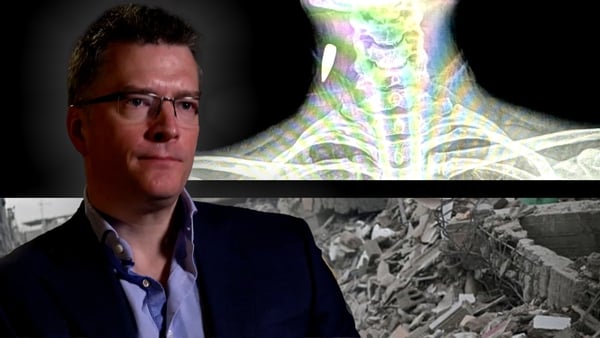With over 25 million inhabitants, Shanghai is one of the world's largest cities, a global financial centre and a glittering monument to China’s economic boom. But, today, the vibrant megacity has been reduced to a ghost town.
A recent surge of the omicron variant has collided with China’s zero-Covid policy, and Shanghai has borne the brunt of the impact.
The situation stands in stark contrast to that of Ireland. While Covid has not gone away here, the degree to which it is impacting our day-to-day lives has diminished to almost nothing. Public health measures have been removed. The lockdown era is over.
In Shanghai, what started with a vague notice of a lockdown that would last several days has now stretched on for over a month.
Danny Morgan, a vlogger from Reading, England, has been confined to barracks since the beginning of April. The front gate of the Shanghai apartment compound where he lives with his girlfriend, Tash, is locked and guarded.
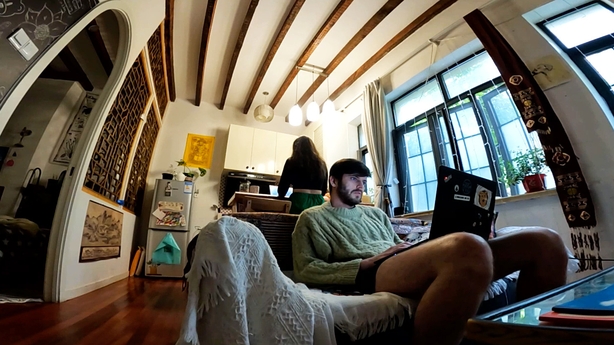
Danny told Prime Time that they go outside for five minutes every day to drop rubbish to the bins and to take a Covid test.
When everybody in the apartment compound is testing negative, they’ll be allowed out. The problem is that the compound consists of 20 apartment buildings, and most compounds will have at least one positive case at any given time.
Danny was recently allowed to leave the compound to attend a hospital appointment.
He filmed his journey as he walked the abandoned streets. Shops are closed and boarded up, footpaths are taped off, traffic is almost non-existent. For the first time since moving to Shanghai from the UK, he can hear the birds singing.
It’s a stark contrast to much of the rest of the world. Successful vaccine programmes have enabled society to reopen more or less as it was before.
David Rennie, the Beijing bureau chief of The Economist, said that China’s vaccination programme has not had the same effect.
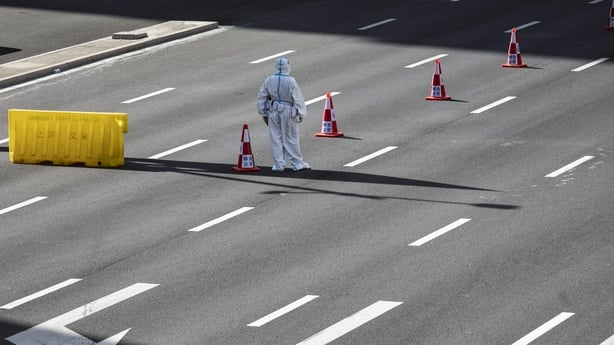
"No one in China has had Moderna or Pfizer because the Chinese communist party has not authorised any foreign vaccine," Mr Rennie told Prime Time.
"They're only using Chinese vaccines and the vaccine is really not very effective against omicron."
Until now, Mr Rennie said, China’s strategy of containing the virus has primarily focused on locking cities down. This latest lockdown is pushing that strategy to breaking point.
Food has been one of the biggest issues. People confined to their homes can’t shop, so food and other necessary supplies must be delivered to them.
Many have to depend on government consignments, the volume and regularity of which change depending on where in Shanghai people live.
Danny is currently in his girlfriend’s apartment, where deliveries have been regular and plentiful.
In the apartment compound where he normally lives with his roommate, he said they’ve had only three or four deliveries since the beginning of April.
People are hungry, frustrated and angry. Many have made themselves heard through loud protests, with residents of multiple apartment buildings banging pots and pans together.
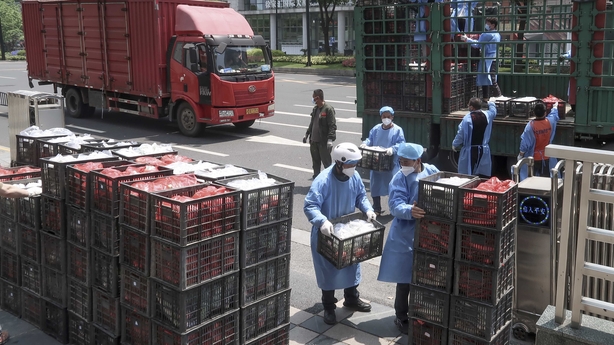
The lockdown has also increased the need for delivery drivers. On Danny’s walk home from the hospitals, he passed tents pitched on the streets.
These were delivery drivers, he said.
"They don't want to go back to their compound and get stuck in," he said.
"So, they're out the streets so they can continue their job, earning some money. And who can blame them?"
Living with lockdown is challenging enough. But those who contract Covid could find themselves in even worse circumstances.
Thousands of people who’ve tested positive have been brought to quarantine centres and essentially detained for weeks at a time.
Jane Polubotko, a Ukrainian national, has been living in Shanghai for nearly 10 years and recently tested positive.
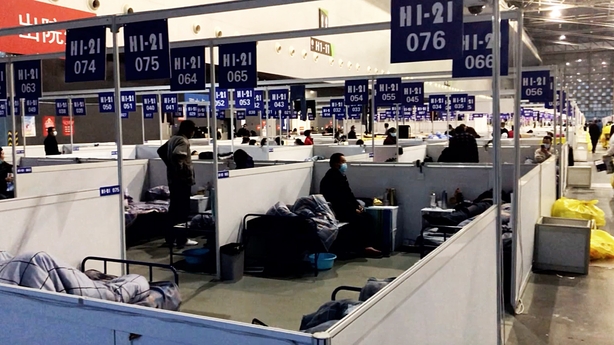
She was brought to a repurposed expo centre, with 4,000 other men and women, and stayed for 19 days.
The videos shot on her phone give a rare glimpse into one of the more dystopian elements of China’s recent outbreak.
There was very little privacy, so Jane got changed under the covers of her bed.
The beds themselves were close together, separated only by waist-high partition walls.
There were also no shower facilities – all washing was done at a row of sinks, which people also had to use to clean their laundry.
Jane told Prime Time that the lights were kept on 24/7, with a constant humming noise.
Severe lockdowns and quarantine centres are only some of the extreme measures employed by the Chinese government in an effort to contain the virus, Mr Rennie noted.
"If I were to test positive for Covid now, I’d be hauled off to a quarantine clinic. They could break into my apartment. They could kill my pet cats because they've done it in other cities," he said.
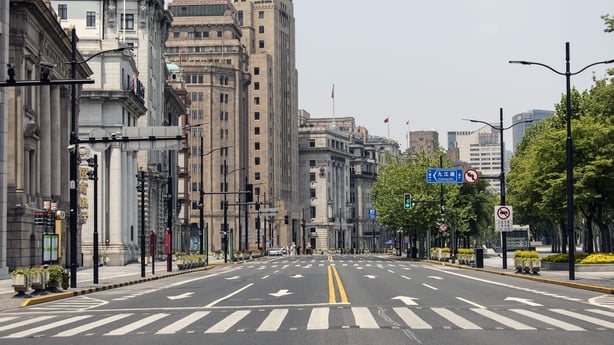
"We are seeing people very alarmed, they're getting tested positive and they get separated from their young children. There have been videos of babies in cots, wailing in terror because they've been separated from their parents. Their own parents didn't know where they are."
The economic cost of locking down a city the size of Shanghai for this length of time is significant, though Mr Rennie said that the Chinese government doesn’t have many attractive options at the moment.
With no foreign vaccines approved and a low take-up among the elderly, ending the lockdown could also prove costly.
"You don't have the ability to open up as Europe has, or as America has, because you can easily get a million or more elderly people dying. And that would be a disaster."
This most recent lockdown has gone on far longer than was initially signalled by the Chinese government.
In recent days, several districts allowed a small number of people to leave their compounds for the first time in weeks.
But, like the vast majority, Danny and Jane remain stuck in their homes with no clear end in sight.



